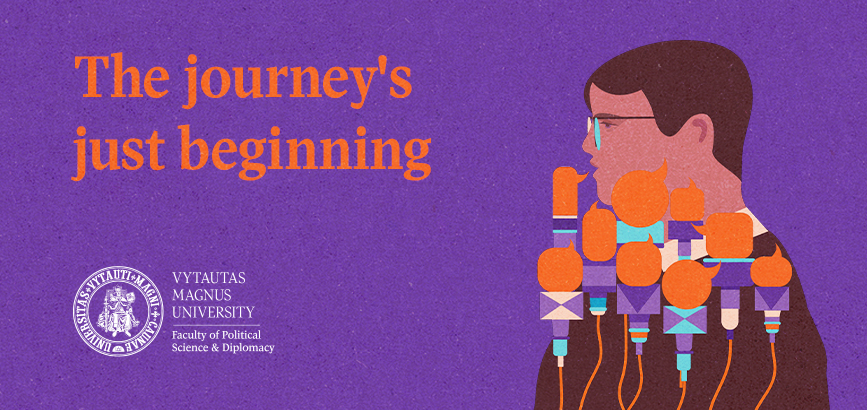Europe on the Brink: Addressing the Refugee Crisis
 On Tuesday 15 March, 6 p.m., at VMU Small Hall (28 S. Daukanto g.) United Nations Student Club and Kaunas International Medical Student’s Union are organizing a discussion entitled Europe on the Brink: Addressing the Refugee Crisis.
On Tuesday 15 March, 6 p.m., at VMU Small Hall (28 S. Daukanto g.) United Nations Student Club and Kaunas International Medical Student’s Union are organizing a discussion entitled Europe on the Brink: Addressing the Refugee Crisis.
The discussion will focus on the future of both the EU as a supranational organization and the refugees who are fleeing wartorn countries. The number of refugees entering Europe is increasing daily, which is creating tension and conflict among EU members while decisions about policies of integration are coming up against policies of refoulement.
Before the discussion, the organizers will present brief, informative case studies of 6 countries who are very much entrenched in the refugee crisis. In these case studies the participants will analyze asylum policies in place, the number of refugees entering the country, the opinions of local residents towards the refugees, and any violence perpetrated against the refugees or by the refugees. They will also discuss how the refugee crisis is challenging/changing political borders (Schengen) and how immigration is causing difficulties within European society (cultural clashes, existing violence, the rise of far right movements, etc.). Furthermore, the way the media portrays the crisis will be examined, as well as how that perpetrates a certain image of the refugees.
The following countries will be presented and discussed: Greece, Germany, Hungary, Turkey, United Kingdom, and Lithuania.
The discussion will be held in English.
Discussion “Terrorist Attacks in Paris: What Do They Mean for Europe?”
 Due to the terrorist attacks in Paris, Vytautas Magnus University research cluster “International Relations and Security Processes: Lithuania in global arena” is organizing the discussion “Terrorist Attacks in Paris: What Do They Mean for Europe ?” on 19th of November, Thursday, 11h15, room 203 Gedimino st. 44.
Due to the terrorist attacks in Paris, Vytautas Magnus University research cluster “International Relations and Security Processes: Lithuania in global arena” is organizing the discussion “Terrorist Attacks in Paris: What Do They Mean for Europe ?” on 19th of November, Thursday, 11h15, room 203 Gedimino st. 44.
The participants of the discussions are: Vice-Dean of Faculty of Political Science and Diplomacy Giedrius Česnakas, PhD, Head of the Social and Political Theory prof. Gintautas Mažeikis, assoc. prof. Rytis Bulota. The discussion will be moderated by Head of VMU research cluster “International Relations and Security Processes: Lithuania in global arena” Gerda Jakštaitė, PhD, and Justinas Juozaitis.
On November 13th, 2015, three teams of terrorists carried out attacks in Paris. 129 people were killed and 352 injured. These terrorist attacks will undoubtedly have an impact on the domestic and foreign policies of European countries, the European economy, the position towards the Syrian refugees. According to dr . Giedrius Česnakas, “the second bloody terrorist attack in Paris in one year indicates that Europe can not feel safe from Islamic fundamentalists. The challenge is not only terrorist attacks, but increasing strength of the radical right-wing powers in Europe and growing hatred towards other religions, cultures and races.” Meanwhile, prof. Gintautas Mažeikis notes that “refugees from Syria also flee from those who blew their families in Aleppo and other cities, and today are attacking Paris.”
How Europe should respond to the terrorist attacks in Paris: take massive protests against the fundamentalists who carried out terrorist acts? Strengthen security of its border? Invest more in migrant integration in Europe? What will be the impact of the terrorist attacks on foreign policy of France and other major powers? Where should we look for causes of in terrorist attacks in Paris: in foreign policy of European countries or in radical political ideologies and movements? Participants of the discussion will try to answer these and other questions.
The discussion will be held in English












